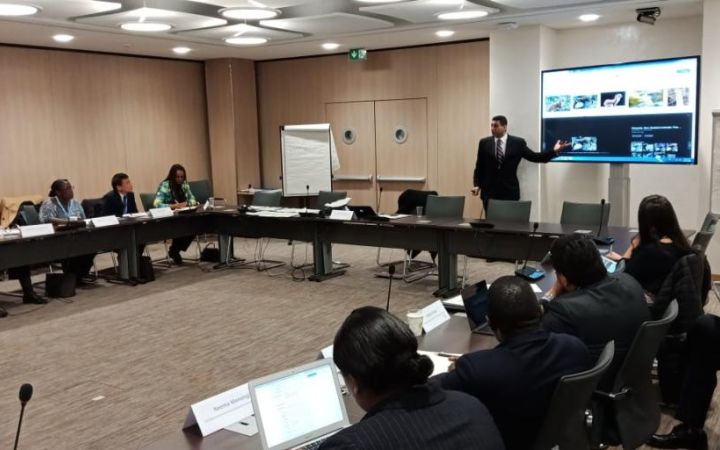16 November 2018, Geneva, Switzerland - The two-day workshop took place on 12-13 November 2018, was part of the Executive Diploma in Diplomatic Practice, was an opportunity for government officials, diplomats and other relevant stakeholders to strengthen their knowledge and understanding of Effective Writing in the context of Multilateral Diplomacy.
The training was delivered by Ambassador Amr Aljowaily, Egypt’s Ambassador to Serbia, who is also a visiting faculty at UNITAR’s Division for Multilateral Diplomacy.
Effective writing is one of the main challenges in diplomacy, given the various backgrounds of participants and its relevance not only for public servants but also for various multi-stakeholders in the international arena. In fact, writing effectively about open sources for diplomatic reporting such as meetings coverage, summary records, procès-verbal and other sources require proper guidelines for clear and concise writing techniques. Additionally, having a thorough understanding of different types of diplomatic reporting and diplomatic cables (for information, commentary and evaluation, for action and follow up and meetings coverage) is essential to be an effective writer. The workshop covered all the above-mentioned aspects, as well as how to correctly draft briefing memos and concept notes for multilateral meetings.
The second day of the workshop focused on writing national and group statements, press releases, national implementation reports and official and diplomatic correspondence in Multilateral Diplomacy. To give a sense of practicality, participants were given case studies with real life examples of various diplomatic writing styles. Subsequently, the participants were asked to analyse and compare the given examples.
This workshop helped participants to familiarize themselves with writing and analytical skills, discerning different forms and styles of diplomatic writing and reporting in multilateral diplomacy. After completing the two days, the participants were overall satisfied with their experience, as 95% of them felt that they met the course objectives and 93% of them agreed that their awareness of the subject has increased. Benefits from the briefing were confirmed by post-training self-evaluations.


